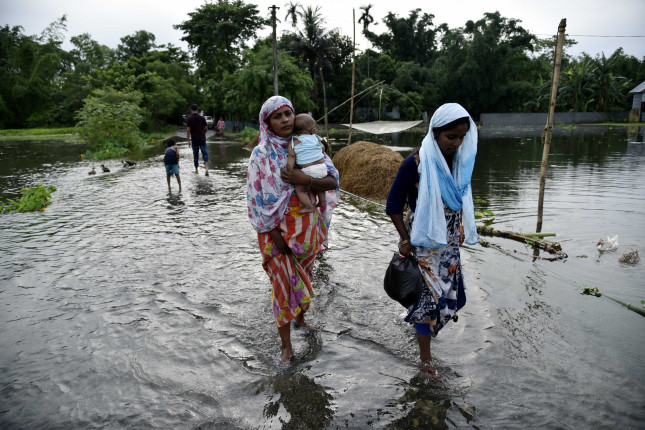-
New Global Health & Gender Policy Brief: Climate Change and Maternal and Newborn Health Outcomes
October 25, 2023 By Maternal Health Initiative Staff
The growing climate crisis presents one of the largest public health threats of the century. However, its countless impacts on maternal and newborn health outcomes (as well as health disparities worldwide) have only recently gained global attention.
While climate change affects all aspects of life in all areas of the world, existing inequities exacerbate the stress felt by its impacts across underserved groups. Women and girls often face increased risks and strains from the impacts of climate change due to existing gender roles and cultural norms that make them responsible for household energy, water, food, and caregiving. There is strong evidence that climate change impacts affect pregnancy and newborn health directly, as well as indirectly due to structural or infrastructure changes where pregnant people and their newborns live.
In a new policy brief, Climate Change and Maternal and Newborn Health Outcomes, the Wilson Center’s Maternal Health Initiative explores the direct and indirect impacts of climate change on maternal and newborn health outcomes; highlights existing policies working to prevent or mitigate these impacts; and offers recommendations to improve resiliency to the growing impacts of the climate crisis.
Climate Change and Maternal… by The Wilson Center
The ways in which these direct and indirect impacts occur are manifold. Climate-related disasters are linked to increased gestational complications, like high blood pressure, dehydration, and kidney failure, as well as pregnancy loss, low birthweight, preterm birth, and delivery or newborn complications. Exposure to extreme heat can result in obstetric complications for women and pregnant people such as placental abruption, gestational hypertension, gestational diabetes, cardiovascular events, preterm birth, miscarriage, stillbirth, and adverse perinatal mental health. Such exposure may also cause neonatal complications such as fetal distress, neonatal intensive care unit (NICU) admissions, fetal growth restriction or low birth weight, congenital birth defects, diarrheal disease, vector-borne diseases (VBDs), and sudden infant death syndrome.
Exposure to wildfire smoke, which contains dangerous particulate matter, can increase the severity of cardiovascular and respiratory disease, which in turn increases the risk of obstetric complications during pregnancy. Increased severity of floods may lead to standing water, which can increase infection and disease, and creates barriers to accessing maternal health services. And as the geographic spread of mosquitoes and ticks expands due to increasing heat, so does the geographic spread of related diseases.
Climate change can also impact environmental issues such as air quality and access to safe food and water, which in turn impacts maternal and newborn health outcomes. Exposure to both indoor and outdoor air pollution contributes to adverse pregnancy and newborn health outcomes. Food shortages can lead to poor maternal nutrition, which increases the risk of low birthweight—and even infant mortality. Additionally, lack of access to safe drinking water contributes to adverse pregnancy outcomes, particularly in regions with fewer resources.
We present the following policy and programmatic recommendations to address these impacts:
- Close the knowledge gap on the direct and indirect impacts of climate change on maternal and newborn health.
- Create and implement policies in the United States and globally to address the impact of climate change on maternal and newborn health.
- Strengthen infrastructure related to antenatal, labor, and delivery care and improve the resilience of health systems.
- Invest in low-cost innovations to mitigate the impacts of climate change.
- Improve education at the community level on strategies to increase adaptation and resilience during climate-related events or stress.
Sources: Centers for Disease Control and Prevention, Journal of Midwifery and Women’s Health, National Oceanic and Atmospheric Administration, PLOS One, Springer, United Nations Climate Change, United States Environmental Protection Agency.
Photo Credit: People wade through flooded road at flood effected Kalgachi in Barpeta. Talukdar David/Shutterstock.com.
 A Publication of the Stimson Center.
A Publication of the Stimson Center.



